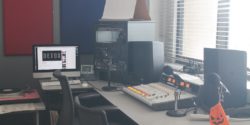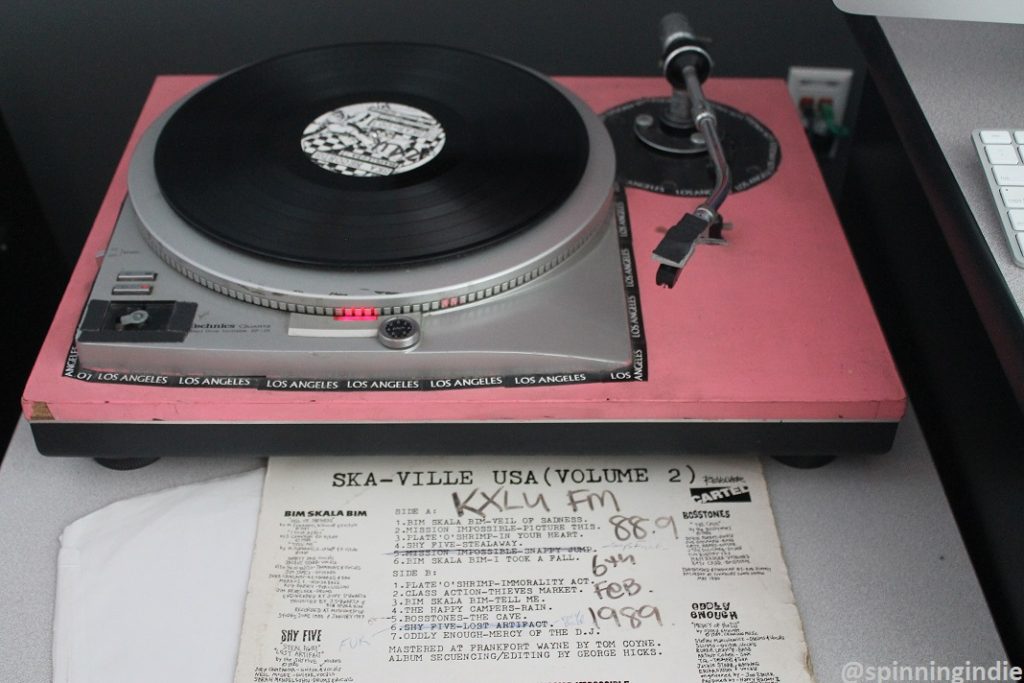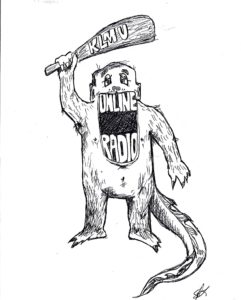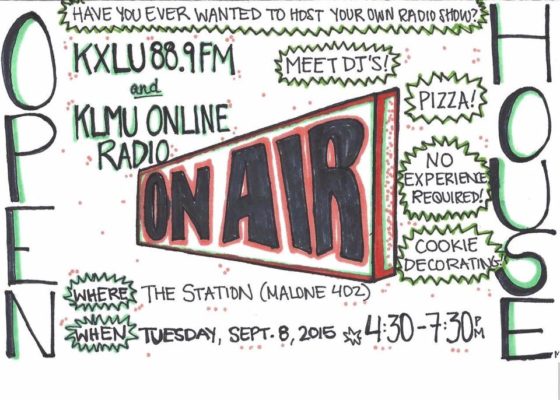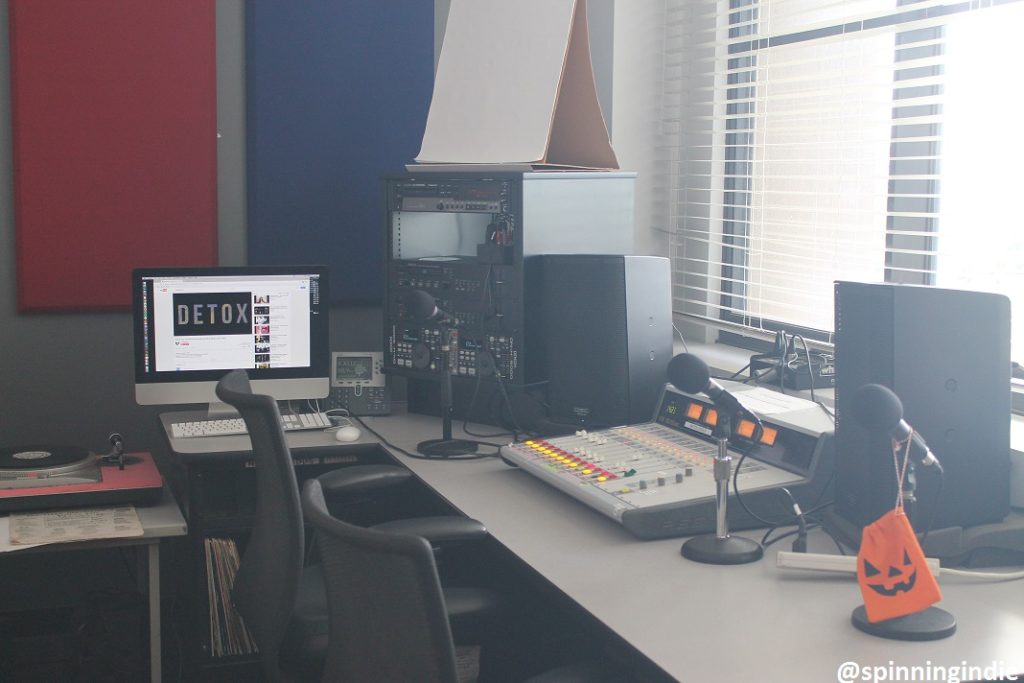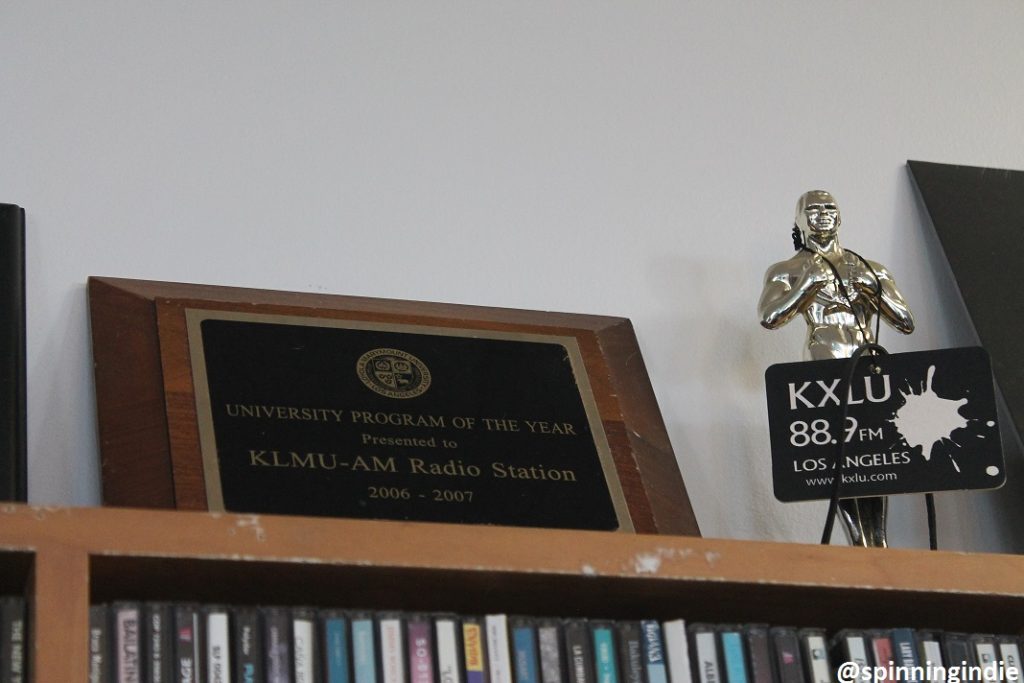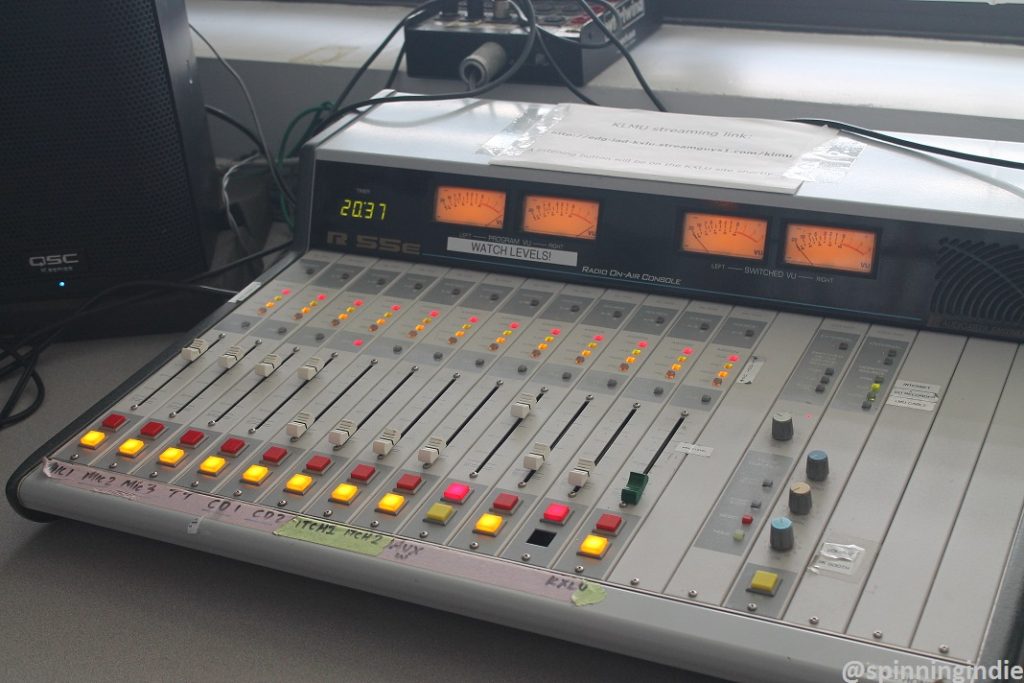It wasn’t until I visited Loyola Marymount University for the UCRN (University of California Radio Network) conference on April 8, that I realized that the Los Angeles campus was home to two college radio stations: KXLU-FM and online station KLMU. Since I have a soft spot for lesser known stations, I was interested in the story behind KLMU. Although it’s housed in the same space as its FM sister station KXLU, it has its own personality and management.
The streaming radio station has roots as a campus-only AM station, which could be heard in the residence halls. Located down the hall in the same space at KXLU, the KLMU studio is outfitted with a turntable, CD players, microphones, and sound board. A full-sized Pac Man arcade game greets arrivals into the studio. When I poked my head in on the Saturday morning of my visit, there was no one on-air, so the station was likely running on automation. KLMU Co-Director Ricky Barocio explained that the online station is “exclusively for LMU students and it is run by students.” With around 54 student DJs, the station plays a mix of “talk shows, sports shows, and…music shows that play music from the early 2000s, to modern indie rock, to some disco/techno/house shows,” according to Barocio.
KXLU advisor Lydia Ammossow explained that for students, faculty & Loyola Marymount staff members interested in broadcasting over FM on KXLU, training at KLMU is a requirement. Barocio added, “KLMU is a necessary prerequisite in order to join KXLU.” In fact, part of his job is to evaluate DJs and select those who he feels are ready to move up to KXLU. KXLU General Manager Lily O’Brien shared that, “KLMU…acts as sort of a precursor for potential KXLU DJs. It is a student run, student-DJ-only radio station that has a different, less strict set of rules than KXLU does, and gives LMU students the opportunity to try and put together a communication broadcast that helps them find their radio voice and taste. It’s actually super cool.” Relations between KXLU and KLMU are friendly, with each station opening up events to the other. The stations have held DJ open houses together and in recent years, KLMU has hosted film screenings, art shows, concerts and music festivals.
A bit mysterious, KLMU doesn’t have a website, although it provides updates and events details on its Facebook page and has an online stream that resides here. Adding to the under the radar feel, its history is difficult to discern. Barocio is a sophomore, just finishing up his second full year at the station. When I asked him about the station’s origins, he said, “I am honestly not too clear about the entire history of LMU, but I know that there [have] always been two stations.”
As recently as 2009, KLMU still referenced a 840AM channel, but it’s hard to determine when its AM carrier current broadcasts ceased. An October, 2009 piece in The Los Angeles Loyolan reported that at the time, “Once on air, DJs’ shows can be heard from channel three of any on campus television, or online at myspace.com.” Ammossow has been managing the student radio program at Loyola Marymount since 2003 and filled in a few more details about KLMU. Over email she told me, “This is anecdotal, but I believe it started in the 1950’s/1960’s and was mainly playing pop and rock while KXLU was playing primarily classical at that time. I’ve had a hard time tracking down the actual history as KLMU 840am, in that iteration, ceased operating well before I came on board. My sense is that it was still available at that frequency into the 90’s, but by the time I came on board in 2003 the wheels were already well into motion for moving it to an official online station since the university had long since got rid of the carrier current interface in the residence halls.”
Barocio explained how he found out about KLMU, telling me, “I had friends who were involved at KLMU, and naturally as I was a music aficionado from LA I found it appropriate to join.” Today, Barocio also hosts a Monday morning show over KXLU and he shared that getting involved with both stations has been a significant experience for him. He told me, “Particularly for me, or people who are interested in joining KXLU, I love how I was able to express my music taste freely and then get the opportunity to join KXLU, which overall has made me [grow] to love LMU more.”
Thanks to KXLU and KLMU for the great visit during UCRN and thanks to Ricky Barocio, Lily O’Brien and Lydia Ammossow for taking the time to share further details about the college radio station. This is my 136th radio station field trip report. Still to come are tours from Philadelphia, New York, and California (including KLMU’s sister station KXLU). My most recent field trips can be found on Radio Survivor and a full list of all my station tour reports is compiled on Spinning Indie.

